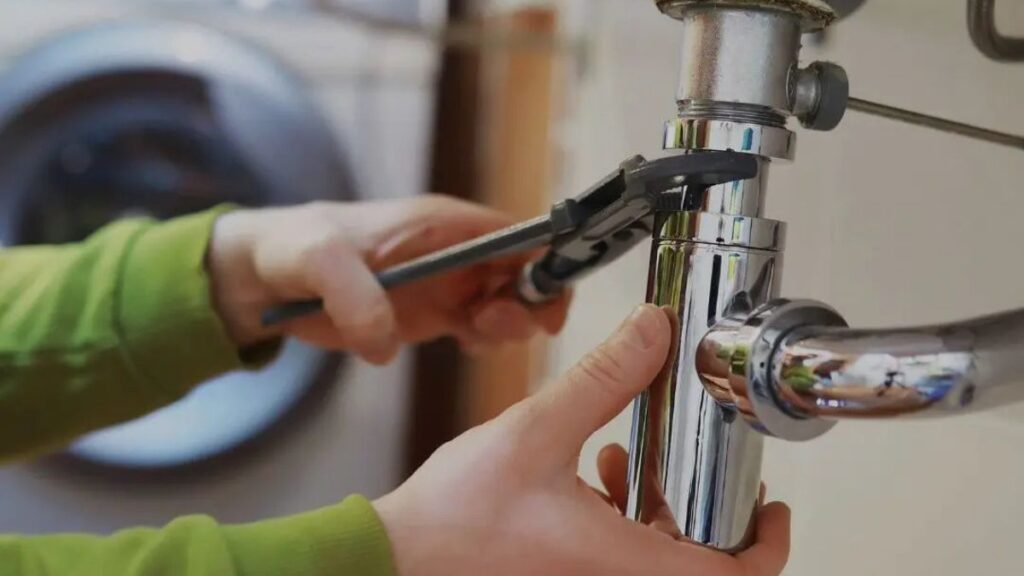Plumbing Basics Every Homeowner Should Learn
Understanding your home’s plumbing is essential to managing common issues and avoiding expensive repairs. Homeowners should locate their main water shutoff valve and learn how to stop water flow quickly in an emergency. Equipping yourself with a working knowledge of pipes, drain systems, and critical fixtures can save time and money when problems arise. Services such as Utah water heater installation & replacement provide expert help and peace of mind when larger upgrades or repairs are needed.
Familiarizing yourself with your home’s plumbing blueprint empowers you to perform minor fixes and identify potential issues before they escalate. A little awareness goes a long way, especially when handling water leaks, managing appliance connections, and knowing how your system responds in different seasons.
Key Maintenance Tasks to Prevent Problems
Regular maintenance is the backbone of a reliable plumbing system. Simple monthly checks—such as inspecting for leaks under sinks, testing the pressure relief valve on your water heater, and watching for drips from faucets—can uncover issues early. It’s wise to flush your water heater periodically, look for corrosion around pipe connections, and clear any obstructions from drains to keep water flowing smoothly year-round.
Small preventive steps can dramatically increase the lifespan of fixtures and appliances. Don’t overlook signs of moisture near appliances, as these hints could suggest early leaks or points of failure. Consulting with professionals every few years to perform a system check can also identify hidden vulnerabilities, especially in older homes.
Simple Ways to Conserve Water at Home
Water conservation is a practical effort that benefits your budget and the broader environment. Homeowners can start by installing low-flow showerheads and dual-flush toilets, dramatically reducing water usage without sacrificing comfort. Promptly repairing dripping faucets and running toilets likewise curtails unnecessary water loss. According to the EPA’s WaterSense program, households can save thousands of gallons a year with even modest adjustments.
Daily habits also make a difference: minimize shower durations, operate dishwashers and laundry machines only with full loads, and consider rainwater collection for landscape use. Collectively, these measures help lower utility bills and support local water resources.
What to Do in Common Plumbing Emergencies
Quick thinking during a plumbing emergency can limit damage and stress. Burst pipes, overflowing toilets, or water heater failures can escalate rapidly, so it’s critical to know the location of all key shutoff valves. Keep an emergency toolkit stocked with essentials like a heavy-duty plunger, pipe tape, and a basin wrench.
In case of a significant leak or overflow, immediately cut off the water supply and move furniture or valuables out of harm’s way. Document any damage for insurance, and call a professional as soon as possible. Swift, calm action helps minimize disruption and repair costs, ensuring your home remains safe and comfortable.
Modern Upgrades to Improve Your Plumbing System
Modern homes benefit greatly from plumbing upgrades designed for efficiency and convenience. Tankless water heaters deliver hot water on demand, reducing energy bills while freeing up valuable space. Smart leak detectors provide immediate notifications via smartphone apps, allowing homeowners to address issues before they escalate. Advanced water filtration systems improve taste, safety, and health for every encounter with tap water.
These innovations often pay for themselves by reducing wasted water, extending the life of appliances, and providing superior performance. Upgrading plumbing infrastructure today sets your home up for years of trouble-free service and lower ongoing costs.
When DIY Is Safe vs. When to Call a Pro
Not every plumbing challenge should become a do-it-yourself project. Homeowners with basic tools and skills can confidently tackle clogged drains, leaky faucets, or broken showerheads. However, projects involving structural pipe replacement, gas water heaters, or compliance with local codes are best left to licensed experts.
Incorrect DIY efforts on major systems could increase the scope of the damage or lead to safety hazards. If you’re unsure, seek the advice of a trusted plumber to ensure repairs are safe, effective, and up to code. Refer to reputable sources like the Family Handyman to build knowledge and confidence for appropriate projects.
Finding Helpful Plumbing Resources Online
The internet is rich with resources for homeowners seeking to learn more about residential plumbing. Reputable publications, home improvement forums, and video tutorials offer step-by-step guidance, from changing a washer to recognizing early warning signs of leaks. Taking advantage of these resources supports more informed decisions and empowers homeowners to maintain their homes’ plumbing systems more effectively.
Whether searching for troubleshooting advice or considering an extensive renovation, information from major sites such as This Old House Plumbing Advice can guide you through best practices and common pitfalls, ensuring confidence in any maintenance routine.
Plumbing Trends and Innovations Shaping the Future
Technological advancements are transforming residential plumbing at an unprecedented pace. Eco-friendly fixtures, sensor-based faucets, whole-home water monitoring, and automated shutoff systems are quickly staples in new and renovated properties. These innovations improve day-to-day comfort and add value and resilience to homes facing evolving climate and resource concerns.
Staying informed about the latest products and practices gives homeowners a significant advantage when considering future upgrades. Proactively adopting modern plumbing trends ensures your living space remains efficient, sustainable, and protected for years to come.
Competent plumbing care ensures efficiency, prevents costly damage, and supports long-term home comfort. With proactive maintenance, modern upgrades, and mindful daily habits, homeowners can avoid common issues while improving water conservation. Prioritizing these solutions creates a safer, more reliable living space where functionality and peace of mind go hand in hand.








